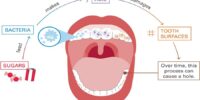10 popular dental diseases and treatments

The most popular dental problems and diseases are the following:
- Tooth decay
- Gum disease
- Bad breath (halitosis)
- Sensitive teeth
- Toothaches
- Tooth loss
- Tooth grinding (bruxism)
- Tooth discoloration
- Dry mouth (xerostomia)
- Mouth sores (such as canker sores or cold sores)
Dental diseases and treatment
If you want to have a healthy and confident smile, it’s important to take care of your teeth and gums. Unfortunately, many people experience dental problems at some point in their lives. Here are 10 common dental problems and what you can do about them:
- Tooth decay: Also known as dental caries or cavities, this occurs when bacteria form a film called plaque on the surface of teeth. The bacteria produce acids that eat away at the enamel, or outer layer, of the tooth and eventually cause holes or cavities. Symptoms include toothaches, bad breath, and black or brown spots on teeth. Treatment options include fillings, crowns, and root canals. To prevent tooth decay, brush and floss your teeth regularly and get regular checkups from your dentist.
- Gum disease: There are two stages of gum disease: gingivitis and periodontitis. Gingivitis is the milder form and is caused by plaque buildup on the teeth. Symptoms include red, swollen, and bleeding gums, bad breath, and sensitive teeth that hurt when chewing. Gingivitis can be treated with a thorough cleaning from a dental professional. To prevent it from returning, brush and floss your teeth regularly. Periodontitis is a more severe form of gum disease that occurs when pockets in the gums become infected. It can lead to shrinkage and recession of the gums, loose permanent teeth, a change in bite, and persistent bad breath. Treatment for periodontitis may include topical antibiotics or referral to a gum disease specialist.
- Bad breath: Also known as halitosis, bad breath can be caused by a variety of factors including poor oral hygiene, dry mouth, medication, infection, acid reflux, or certain foods. Your dentist will assess the cause of your bad breath and recommend a course of action.
- Sensitive teeth: When the enamel on your teeth is worn away and the dentin is exposed, your teeth may become sensitive to hot and cold foods and drinks. Causes of tooth sensitivity include tooth decay, gum disease, root infections, cracked teeth, or grinding your teeth. Treatment options may include toothpaste for sensitive teeth, fluoride treatments, or a mouthguard for teeth grinding.
- Toothaches: Toothaches can be caused by tooth decay, gum disease, infected teeth, or tooth injuries. To alleviate a toothache, you can rinse your mouth with warm water, use dental floss to remove any food stuck between your teeth, and take over-the-counter pain medication. If the pain persists, see your dentist as soon as possible.
- Tooth loss: Tooth loss can be caused by tooth decay, gum disease, or trauma to the teeth. Treatment options include dental implants, dentures, or bridges.
- Tooth grinding: Also known as bruxism, tooth grinding can cause sensitive teeth, toothaches, and jaw pain. To prevent tooth grinding, your dentist may recommend a mouthguard to wear at night.
- Tooth discoloration: Tooth discoloration can be caused by certain foods and drinks, tobacco use, certain medications, or natural aging. Treatment options include professional teeth whitening or veneers.
- Dry mouth: Dry mouth, also known as xerostomia, can be caused by certain medications, medical conditions, or dehydration. Dry mouth can lead to tooth decay, mouth sores, and difficulty speaking or swallowing. To treat dry mouth, drink plenty of water, avoid tobacco and alcohol, and use saliva substitutes if recommended by your dentist.
- Mouth sores, such as canker sores and cold sores, are common dental problems that can be painful and annoying. Canker sores are small, shallow ulcers that appear on the inside of the mouth, while cold sores are caused by the herpes simplex virus and appear on the lips or around the mouth.
Other dental problems are
Canker sores can be triggered by a variety of factors including stress, trauma to the mouth, certain foods, and dental appliances. They usually go away on their own within a week or two. To help alleviate the pain and speed up healing, you can rinse your mouth with a mixture of salt and water or use over-the-counter pain medication.
Cold sores, on the other hand, are caused by the herpes simplex virus and can be contagious. They usually go away on their own within a week or two, but antiviral medications can help speed up the healing process and reduce the severity of the outbreak. To prevent the spread of cold sores, avoid kissing or sharing utensils, towels, or lip balm with others.
If you have a mouth sore that does not go away or is accompanied by other unusual symptoms, it is important to see a dentist or medical professional for proper diagnosis and treatment.
How to avoid dental diseases
There are several steps you can take to help prevent dental diseases:
- Brush your teeth twice a day with fluoride toothpaste: Brushing removes plaque, a sticky film of bacteria that builds up on teeth and causes tooth decay and gum disease.
- Floss daily: Flossing removes plaque and food particles from between your teeth and along the gumline, areas that a toothbrush can’t reach.
- Use mouthwash: Mouthwash helps kill bacteria and freshens your breath.
- Replace your toothbrush every three to four months: Over time, toothbrushes wear out and become less effective at removing plaque.
- Drink plenty of water: Water helps rinse away food particles and bacteria from your teeth and mouth.
- Eat a healthy diet: A diet high in sugary and acidic foods and drinks can increase your risk of tooth decay and gum disease. Choose foods that are low in sugar and rich in nutrients, such as fruits, vegetables, and whole grains.
- Don’t use tobacco: Smoking and chewing tobacco can increase your risk of gum disease and oral cancer.
- Get regular dental checkups: Seeing a dentist regularly can help catch and treat dental problems early on.
- Wear a mouthguard if you grind your teeth at night: Tooth grinding (bruxism) can wear down your teeth and cause sensitivity and pain. Wearing a mouthguard at night can protect your teeth.
By following these steps, you can help keep your teeth and gums healthy and prevent dental diseases.
Key takeaways
Here are the key takeaways from this article on how to prevent dental diseases:
- Brush your teeth twice a day with fluoride toothpaste
- Floss daily
- Use mouthwash
- Replace your toothbrush every three to four months
- Drink plenty of water
- Eat a healthy diet
- Don’t use tobacco
- Get regular dental checkups
- Wear a mouthguard if you grind your teeth at night
Wrap up
In summary, dental problems are common and can range from tooth decay and gum disease to bad breath, sensitive teeth, toothaches, tooth loss, tooth grinding, tooth discoloration, dry mouth, and mouth sores. Proper oral hygiene, including brushing and flossing regularly and getting regular checkups from a dentist, can help prevent many dental problems.
If you do experience a dental problem, there are various treatment options available depending on the specific issue. If you are experiencing severe or persistent dental problems, it is important to see a dental professional for proper diagnosis and treatment.










